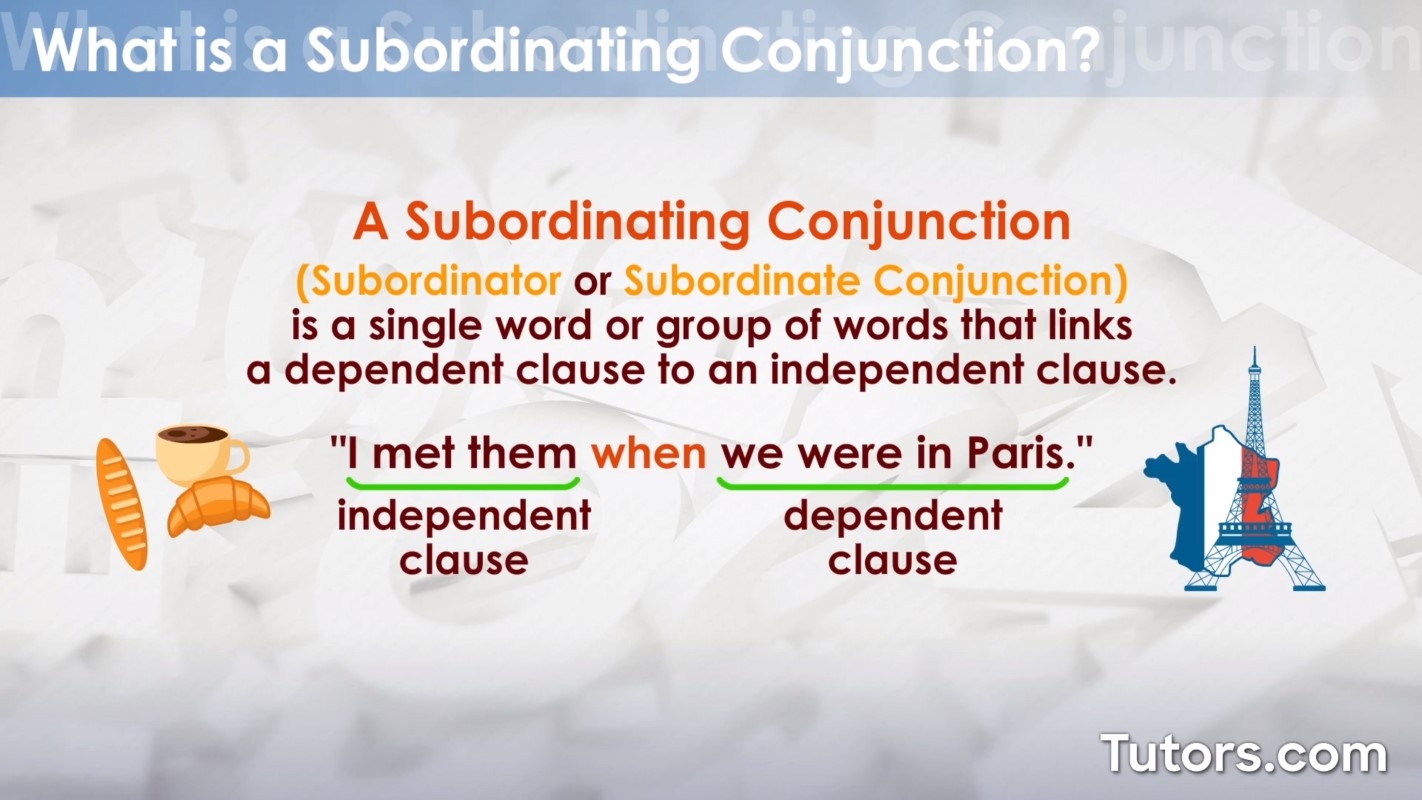Subordinating conjunctions are words that join dependent clauses to independent clauses. They help to show the relationship between the two clauses and make the sentence more meaningful. Understanding subordinating conjunctions is essential for constructing complex sentences and improving the overall flow of your writing.
There are many subordinating conjunctions in the English language, each serving a specific purpose in connecting clauses. Some common examples include “although,” “because,” “since,” “while,” and “if.” Let’s explore these subordinating conjunctions in more detail to understand how they function in a sentence.
Examples of Subordinating Conjunctions:
1. Although: I decided to go for a run, although it was raining outside.
2. Because: She passed the exam because she studied hard all week.
3. Since: I have known her since we were in elementary school.
4. While: He was cooking dinner, she was setting the table.
5. If: If it rains tomorrow, we will have to cancel the picnic.
Subordinating conjunctions are essential for creating complex sentences with multiple clauses. They allow writers to express relationships between ideas and provide more context to the reader. By mastering the use of subordinating conjunctions, you can enhance the clarity and coherence of your writing. Remember to use them strategically to connect clauses effectively and convey your message concisely.
In conclusion, subordinating conjunctions play a crucial role in constructing sentences that are clear, cohesive, and engaging. By incorporating these conjunctions into your writing, you can create more complex and sophisticated sentences that effectively convey your ideas. Practice using subordinating conjunctions in your writing to improve your sentence structure and make your writing more impactful.
